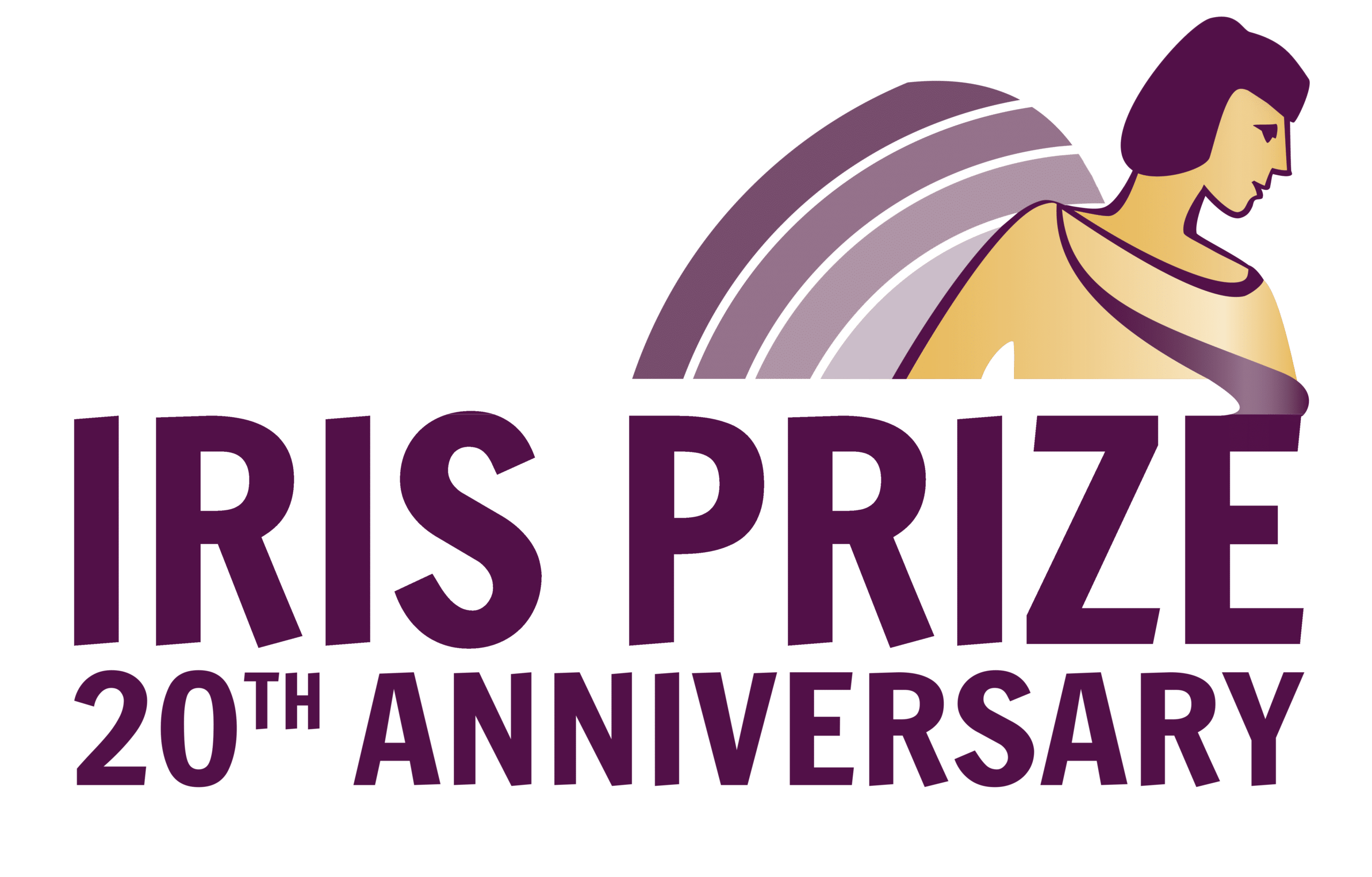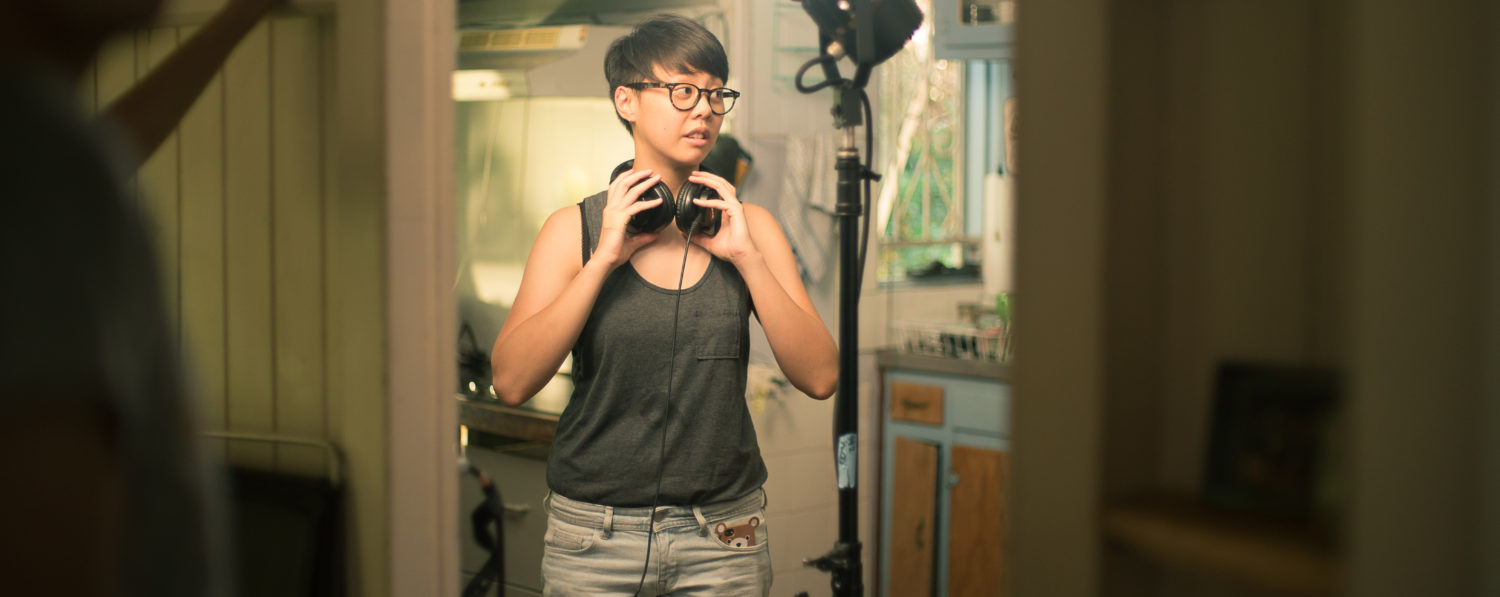Interview – Mary Duong
'Two Weeks' is a nine-part web series exploring what it means to be young, queer, and uncertain, set in Brisbane, Australia. It is screening at Iris 2019 along with a Q&A with its creator and co-writer, Mary Duong, on the subject of web series. Lucy Smith caught up with her to talk about writing, empathy and friendship.
There are picture descriptions for those with a visual impairment at the end of this post.
LUCY SMITH: Two Weeks feels very real. Characters are human and sometimes make questionable choices – and yet I found I grew to like each person in their own way. Tell us a bit about the making of the characters. Where did inspiration come from?
MARY DUONG: That’s so lovely, thank you! Our entire creative team, especially our wonderful producer, writers, directors, and cast, worked so very hard to workshop and develop our characters to make sure that they felt real and human. Each and every one of our creative team and cast gave so much of themselves to the characters and I truly believe that’s where the honesty within the series comes from. I hope that our audience can empathise with our characters and that they can relate to the situations that the characters find themselves in.
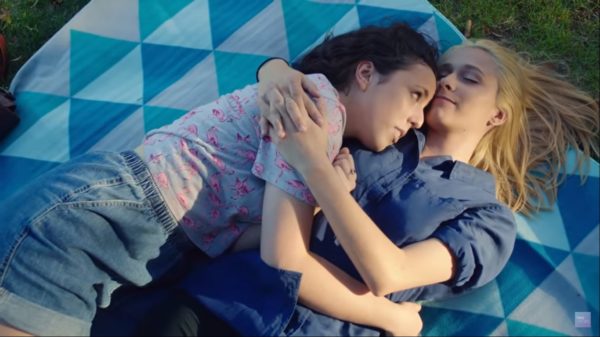
Broadly speaking, our characters were crafted with a lot of the team’s personal experiences in mind.
Two Weeks is a love letter to the people that we love and the city that we live in, so we brought our lived experiences to developing the series and the characters. It was really important to me that the characters reflected us.
With that in mind, I think the inspiration came from being seen and heard on screen. I really believe that seeing yourself represented and reflected in media is so validating, especially when you’re a young, queer person. I still remember watching
Skins as a teenager, not quite comfortable in my skin, and seeing Emily and Naomi in Season 3. I felt that story arc down to my bones. It made me feel less alone in the world. The inspiration for telling these stories through our characters came from wanting to speak directly to queer audiences and to hopefully inspire that feeling in them.
LS: The prejudice towards LGBT+ people is hinted at in certain moments throughout the series. Did you feel these moments were saying something about the culture in Brisbane specifically, or could these stories have taken place in any city?
MD: This is a really interesting question and I don’t think I can succinctly answer it! It’s something I’ve thought about quite a bit since
Two Weeks was written. This is a deeply personal series and I wanted to touch on these moments to show that they are, unfortunately, sometimes part of the queer experience. Being visible by simply existing can be a political act for LGBT+ people.
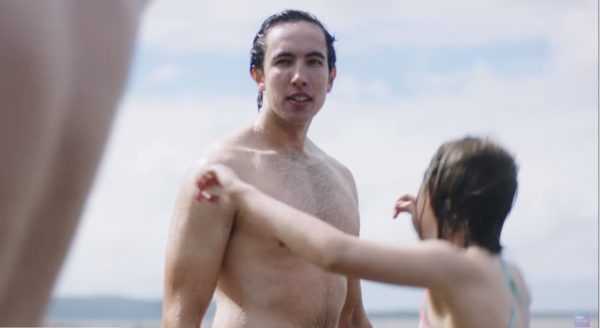
Hinting at these prejudices wasn’t necessarily a specific comment on the culture in Brisbane; however, while I do believe that these stories are universal and could reflect any city, I think the series speaks to a culture that exists outside of bigger metropolitan areas with bigger queer communities, like Sydney or Melbourne. Brisbane is smaller than these cities and in a lot of ways, can feel more conservative than them.
I could go on about this because I think it’s an area of discussion that is really important and I’m constantly learning more about it. When I first started developing
Two Weeks, my stand point on reflecting queerness in Brisbane was different to how I feel about it now. And we’ve had varying responses to the perhaps subtler approach that we took. I would love to explore this area further in a second season, if we’re lucky enough to make it, to reflect what living out loud looks like for people in Brisbane now.
LS: A key message I took from
Two Weeks was that friendship is the most important relationship we can have. Would you agree with this, and was it intentional to promote this message?
MD: Absolutely, I definitely agree with this. Throughout each story strand, each main character goes through their own arc of shifting their focus away from relationships and moving towards finding themselves and seeking comfort with their friends. Friendships play a significant part in our lives, and yet, I think we’re taught that romantic relationships are the be all and end all. I think it’s also incredibly important to reflect what queer friendship looks like, as friends often become chosen family.
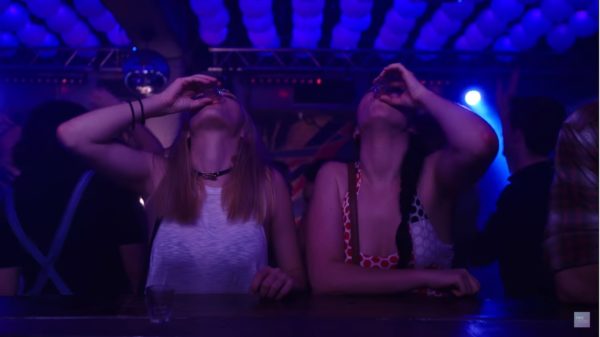
I don’t think it was entirely intentional when we were initially developing the series, but through the writing and production process, it became clear that this was a strong key message. The creative team and myself are all close friends and we’ve known each other for a long time, so I think, as we worked on the series together for a couple years, the friendship focus came through naturally. I’m very thankful to the
Two Weeks team - Rhiannon, Ben, Dan, Rachel, and Isabel - for their love, friendship, energy, and talent.
Lucy Smith is a Cardiff-based writer and the creator of the Talking Ink podcast.
Two Weeks | The Atrium (Theatre), Cardiff CF24 2FN | Fri 11th Oct | 3:00pm
Mary Duong will be attending the Iris Prize LGBT+ Film Festival and taking part in a Q&A after the screening of Two Weeks.
Buy tickets
Picture Descriptions
- The title 'Two Weeks', overlaying a shot of the characters Lucas, Mitch and Audrey hugging. They are in a garden, with British flag bunting in the background and a picture of Queen Elizabeth the Second as she appears on the Sex Pistols' album Never Mind the Bollocks.
- A picture of Mary Duong on set. She is wearing a grey vest and glasses and has a pair of headphones around her neck.
- Audrey and Claire lie on a picnic blanket in dusk sunlight. They are in one another's arms, and Audrey is looking up at Claire as she talks to her, while Claire has her eyes shut.
- On a beach, the character Sean, wet from swimming, gazes longingly at Lucas (who is out of shot) while his girlfriend goes to embrace him.
- Claire and Audrey sit side by side in a dimly lit bar, both knocking back shots at exactly the same time, and in perfect symmetry. Claire is holding her shot in her right hand, Audrey is holding hers in her left hand.
 Broadly speaking, our characters were crafted with a lot of the team’s personal experiences in mind. Two Weeks is a love letter to the people that we love and the city that we live in, so we brought our lived experiences to developing the series and the characters. It was really important to me that the characters reflected us.
With that in mind, I think the inspiration came from being seen and heard on screen. I really believe that seeing yourself represented and reflected in media is so validating, especially when you’re a young, queer person. I still remember watching Skins as a teenager, not quite comfortable in my skin, and seeing Emily and Naomi in Season 3. I felt that story arc down to my bones. It made me feel less alone in the world. The inspiration for telling these stories through our characters came from wanting to speak directly to queer audiences and to hopefully inspire that feeling in them.
LS: The prejudice towards LGBT+ people is hinted at in certain moments throughout the series. Did you feel these moments were saying something about the culture in Brisbane specifically, or could these stories have taken place in any city?
MD: This is a really interesting question and I don’t think I can succinctly answer it! It’s something I’ve thought about quite a bit since Two Weeks was written. This is a deeply personal series and I wanted to touch on these moments to show that they are, unfortunately, sometimes part of the queer experience. Being visible by simply existing can be a political act for LGBT+ people.
Broadly speaking, our characters were crafted with a lot of the team’s personal experiences in mind. Two Weeks is a love letter to the people that we love and the city that we live in, so we brought our lived experiences to developing the series and the characters. It was really important to me that the characters reflected us.
With that in mind, I think the inspiration came from being seen and heard on screen. I really believe that seeing yourself represented and reflected in media is so validating, especially when you’re a young, queer person. I still remember watching Skins as a teenager, not quite comfortable in my skin, and seeing Emily and Naomi in Season 3. I felt that story arc down to my bones. It made me feel less alone in the world. The inspiration for telling these stories through our characters came from wanting to speak directly to queer audiences and to hopefully inspire that feeling in them.
LS: The prejudice towards LGBT+ people is hinted at in certain moments throughout the series. Did you feel these moments were saying something about the culture in Brisbane specifically, or could these stories have taken place in any city?
MD: This is a really interesting question and I don’t think I can succinctly answer it! It’s something I’ve thought about quite a bit since Two Weeks was written. This is a deeply personal series and I wanted to touch on these moments to show that they are, unfortunately, sometimes part of the queer experience. Being visible by simply existing can be a political act for LGBT+ people.
 Hinting at these prejudices wasn’t necessarily a specific comment on the culture in Brisbane; however, while I do believe that these stories are universal and could reflect any city, I think the series speaks to a culture that exists outside of bigger metropolitan areas with bigger queer communities, like Sydney or Melbourne. Brisbane is smaller than these cities and in a lot of ways, can feel more conservative than them.
I could go on about this because I think it’s an area of discussion that is really important and I’m constantly learning more about it. When I first started developing Two Weeks, my stand point on reflecting queerness in Brisbane was different to how I feel about it now. And we’ve had varying responses to the perhaps subtler approach that we took. I would love to explore this area further in a second season, if we’re lucky enough to make it, to reflect what living out loud looks like for people in Brisbane now.
LS: A key message I took from Two Weeks was that friendship is the most important relationship we can have. Would you agree with this, and was it intentional to promote this message?
MD: Absolutely, I definitely agree with this. Throughout each story strand, each main character goes through their own arc of shifting their focus away from relationships and moving towards finding themselves and seeking comfort with their friends. Friendships play a significant part in our lives, and yet, I think we’re taught that romantic relationships are the be all and end all. I think it’s also incredibly important to reflect what queer friendship looks like, as friends often become chosen family.
Hinting at these prejudices wasn’t necessarily a specific comment on the culture in Brisbane; however, while I do believe that these stories are universal and could reflect any city, I think the series speaks to a culture that exists outside of bigger metropolitan areas with bigger queer communities, like Sydney or Melbourne. Brisbane is smaller than these cities and in a lot of ways, can feel more conservative than them.
I could go on about this because I think it’s an area of discussion that is really important and I’m constantly learning more about it. When I first started developing Two Weeks, my stand point on reflecting queerness in Brisbane was different to how I feel about it now. And we’ve had varying responses to the perhaps subtler approach that we took. I would love to explore this area further in a second season, if we’re lucky enough to make it, to reflect what living out loud looks like for people in Brisbane now.
LS: A key message I took from Two Weeks was that friendship is the most important relationship we can have. Would you agree with this, and was it intentional to promote this message?
MD: Absolutely, I definitely agree with this. Throughout each story strand, each main character goes through their own arc of shifting their focus away from relationships and moving towards finding themselves and seeking comfort with their friends. Friendships play a significant part in our lives, and yet, I think we’re taught that romantic relationships are the be all and end all. I think it’s also incredibly important to reflect what queer friendship looks like, as friends often become chosen family.
 I don’t think it was entirely intentional when we were initially developing the series, but through the writing and production process, it became clear that this was a strong key message. The creative team and myself are all close friends and we’ve known each other for a long time, so I think, as we worked on the series together for a couple years, the friendship focus came through naturally. I’m very thankful to the Two Weeks team - Rhiannon, Ben, Dan, Rachel, and Isabel - for their love, friendship, energy, and talent.
Lucy Smith is a Cardiff-based writer and the creator of the Talking Ink podcast.
Two Weeks | The Atrium (Theatre), Cardiff CF24 2FN | Fri 11th Oct | 3:00pm
Mary Duong will be attending the Iris Prize LGBT+ Film Festival and taking part in a Q&A after the screening of Two Weeks.
Buy tickets
Picture Descriptions
I don’t think it was entirely intentional when we were initially developing the series, but through the writing and production process, it became clear that this was a strong key message. The creative team and myself are all close friends and we’ve known each other for a long time, so I think, as we worked on the series together for a couple years, the friendship focus came through naturally. I’m very thankful to the Two Weeks team - Rhiannon, Ben, Dan, Rachel, and Isabel - for their love, friendship, energy, and talent.
Lucy Smith is a Cardiff-based writer and the creator of the Talking Ink podcast.
Two Weeks | The Atrium (Theatre), Cardiff CF24 2FN | Fri 11th Oct | 3:00pm
Mary Duong will be attending the Iris Prize LGBT+ Film Festival and taking part in a Q&A after the screening of Two Weeks.
Buy tickets
Picture Descriptions
